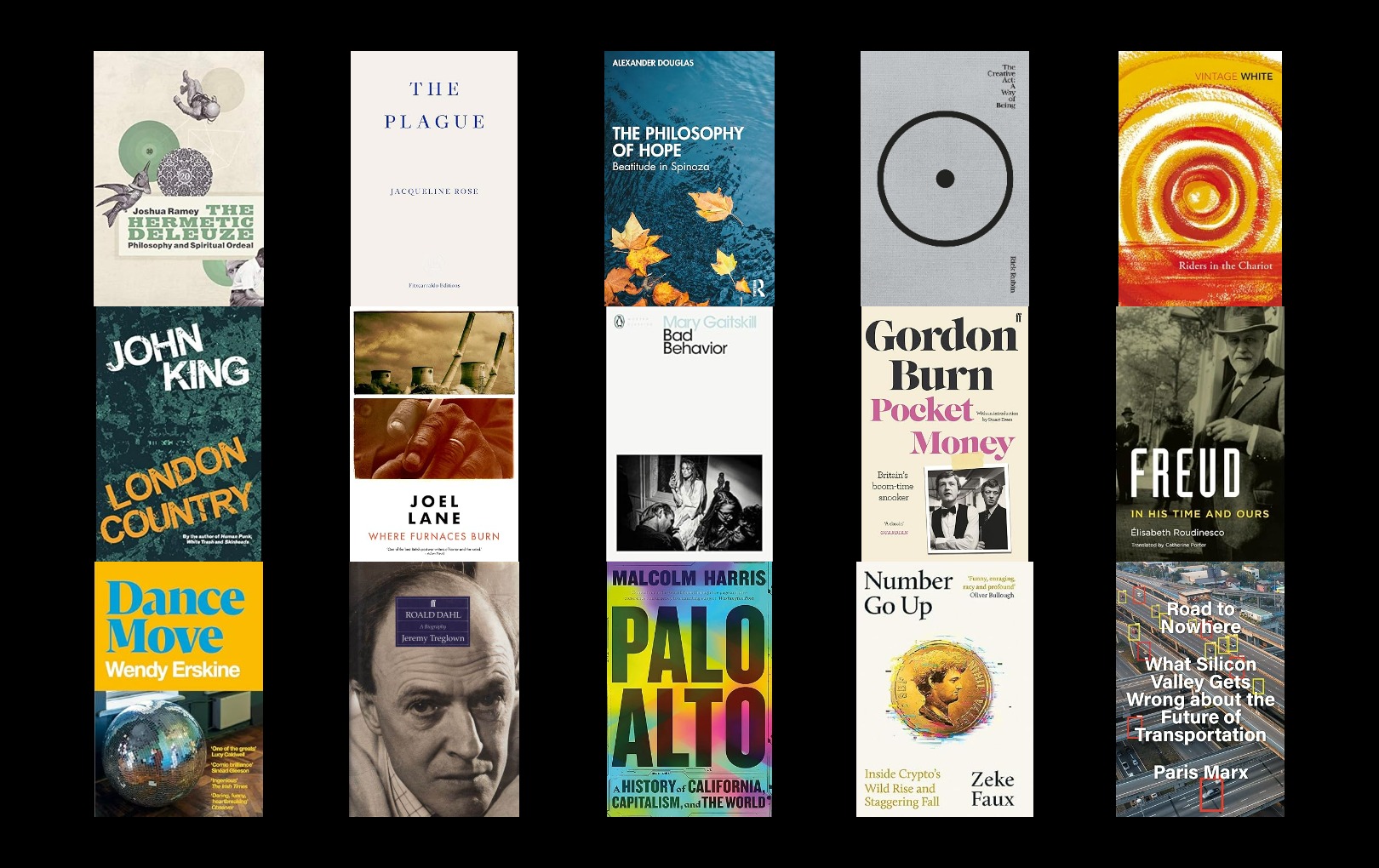
Brad Evans: I Know I Will Never Write a Better Book
If the measure of writing is to get as close as we can to the truth of existence, I know I will never write a
Mark Perryman of Philosophy Football is unconvinced by English football’s occupation of any moral high ground vs FIFA Corruption
“I’m incredibly disappointed with the timing of what the BBC seem to be proposing with Panorama. To do it the week before the vote—I don’t think it’s patriotic.” —Andy Anson, Director England World Cup 2018 Bid, November 2010
That’s right, on the eve of England’s doomed bid to host World Cup 2018, the bid director took time out to lambast the BBC for investigating FIFA corruption. Five years later, with FIFA headquarters raided by police and arrests made, the smell of English football’s hypocrisy in adopting the role of the game’s moral guardian should border on the overpowering. But most of this context is lost in the soft-target discourse of Blatter-bashing.
Even a cursory look at England’s bid reveals the lows it was willing to sink to. Not all England friendlies are pointless, but an early summer trip to play Trinidad and Tobago for a match certainly was. The sole purpose—to buy up the island FA’s valuable executive vote, the notorious Jack Warner. The sheer awfulness of this kind of practice was cruelly exposed when the planned friendly in Thailand was cancelled after Thailand failed to vote for England’s bid. No vote? No game. A transaction as corrupt as they come.
I’m no fan of the Royal Family or the Tories, but when Cameron and Prince William were joined by David Beckham to do some some serious last-minute lobbying the days before the 2018 vote, we were asking a future king, the Prime Minster and a former England Captain to play footsie with some of the most corrupt individuals in world football. Just how low would England sink in the process of scrambling around for votes? As low as required.
One of my favourite memories of South Africa’s World Cup 2010 was the South African fans chant ‘FICK FUFA’. Africa’s first World Cup, a showcase for post-apartheid South Africa left a nation fleeced to the limit by FIFA tax breaks, profiteering and sponsorship spivs. ‘FICK FUFA’ is the default position of football fans the world over. Another footballing memory: the Women’s Football Gold Medal match at London 2012. Sepp Blatter’s face appears on the big screen as he prepares to walk out to present the medals, prompting near universal boos all around Wembley. He looked shocked, shaken…don’t these people know what he’s done for world football? Yes, we do. Thats why we booed. He didn’t bother coming back to do the medal presentation for the Men’s football Olympic Final.
Football has grown enormously since the England team’s one golden moment, winning the World Cup in ‘66 (49 years ago this July). It’s gone global, but that international spread has been overwhelmingly shaped by a corporate model of globalisation. Taking the World Cup to the USA, Japan and Korea and South Africa; seeing the rise of the game in Africa, the Caribbean, the Middle East; newly formed nations post ‘89 finding their identity on a football pitch—all of these are essential goods of human liberation. But those positives have been squandered by the drive to turn territories into markets, commercialising the goodness of the game out of existence, stitching up inter-continental TV and branding rights to enrich those who run the game in their own interest and nobody else’s.
The earlier period of European imperial patronage that once ran world football has been replaced in the post-modern era by a nakedly-monetised patronage. Football’s governing class is now almost exclusively drawn from the world of commerce, and even when individuals don’t fit that particular background, their values and ambitions are still entirely dictated by the commercial imperative. Of course, modern football is an increasingly expensive enterprise, though we might well ask why costs are ever rising with no obvious benefits to the supporters who follow the game, the non-elite players who form its cultural and sporting backdrop, or the development of children and youth players to create a future for the sport. Where are the supporters’ voices and experiences in this organisational culture? Where are the coaches and players providing any kind of meaningful input to how the game is run? How are those who staff the game at its base (mainly voluntarily) to provide the breadth of participation—though this is in headlong decline—provided with the channels to influence the future of football?
That’s the problem, a universal one. Football’s bosses simply don’t reflect any kind of image of the game of this sort. Blatter the soft target—however legitimate our utter contempt for the man—symbolises the ugly inside of what was once proud to be not only the beautiful but also the people’s game. Simple rules, no expensive kit required, playable on almost any surface, played by any shape of the human body, male or female, and, for the lucky few, a professionalised route out of poverty the world over. No marketing plan was needed to create football’s global appeal, its these values and traditions that provided it with an entire planet of fans and players. FIFA has lost all touch with this most basic appeal of football but then so has the entire sport. Cry no tears for Blatter and his cronies—they deserve every bit of ignominy we would wish upon them. But the power brokers most likely to usher Blatter out the back door are the corporates, the sponsors, the suits who see their careers and cash cow threatened, diminished by his illicit actions. These are no saviours of any remnant of the game because they remain people with next to no understanding of its popular beauty .
Mired in hypocrisy football won’t be cleaning up its act any time soon. We need to turn the game upside down to do that, governed by its grassroots, internationalism replacing patronage. A first step would be the England team, and English club sides too, touring Africa in the pre-season not to flog shirts or hoover up FIFA Executive votes but because this continent has given the world game so much and been rewarded with next to nothing in return. For ninety minutes the world of football is at loggerheads with one another, its the same all over, but the essence of FIFA should be what unites us once the final whistle has been blown. The love of the game, a loyalty to what it represents, which no transfer fee on earth can buy, is an emotion that few who run modern football have any kind of recognition for, any understanding of, any affection because it stands in total opposition to the monetisation of our sport, our fandom, that they crave. While enjoying Blatter’s and FIFA’s tribulationsand hopefully trial—we shouldn’t lose sight of the fact that football’s problems won’t be solved until this salient fact begins to be addressed.
Mark Perryman is the co-founder of Philosophy Football. 66 And All That, the book he is editing on the 50th anniversary of England’s World Cup victory, will be published by Repeater in 2016. .

If the measure of writing is to get as close as we can to the truth of existence, I know I will never write a

To accompany his latest piece with Tariq Goddard in The Quietus on True Detective Season 4 and the legacy of In The Dust of This Planet, Eugene

As another turbulent year draws to a close, the Repeater team put forward their favourite reads for the festive season. Publisher, Editor, and Author Tariq

If the measure of writing is to get as close as we can to the truth of existence, I know I will never write a

To accompany his latest piece with Tariq Goddard in The Quietus on True Detective Season 4 and the legacy of In The Dust of This Planet, Eugene

As another turbulent year draws to a close, the Repeater team put forward their favourite reads for the festive season. Publisher, Editor, and Author Tariq
